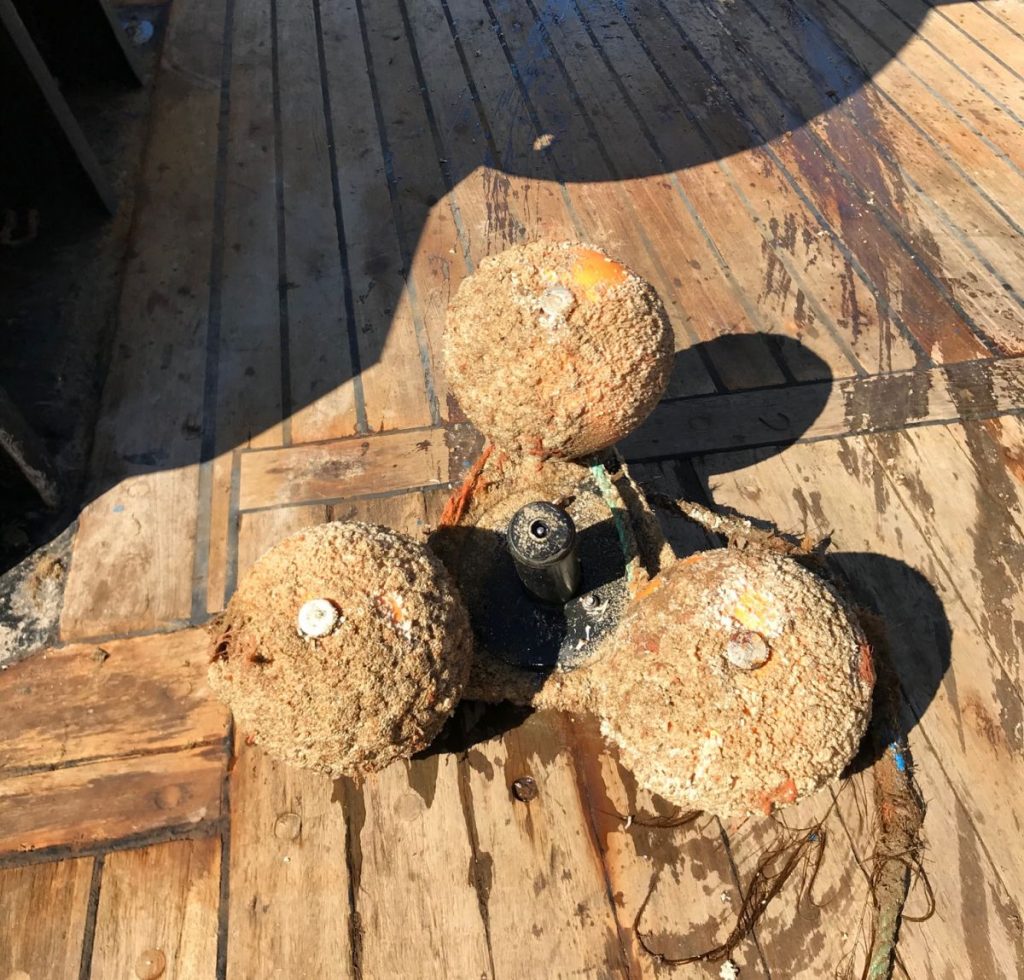Revealing the sounds of lockdown seas
In July, COMPASS staff returned from the first research outing on the RV Corystes since lockdown, which included the collection of acoustic recording devices. These COMPASS and MarPAMM devices (sound recorders) were deployed off western Scotland and Northern Ireland throughout the late winter and spring of 2020 with many of them operating throughout the lockdown period. The moorings aren’t normally left at sea for this length of time but due to COVID-19 restrictions field and vessel work was halted and only in the last couple of weeks has resumed with safe working measures in place.

One of the unintended consequences of the restrictions imposed during the COVID-19 pandemic is that there is likely to have been a reduction in human activities at sea. This could include passenger transportation (e.g. ferries), recreational boating, and even business traffic such as commercial fishing and transport of freight.
Underwater noise can have a negative impact on cetacean species as they rely on sound for so many important functions such as communication, foraging and navigation. In the coming months it will be interesting to see if we can see (hear) any changes in cetacean vocalisations in the COMPASS array.
Researchers in Canada have been carrying out real time observations of the impact of COVID-19 on underwater noise (Thomson & Barclay, 2020). They have observed a significant decrease in low frequency sounds (associated with shipping) during the lockdown period. There are now international efforts to coordinate this work on ambient noise monitoring and we are hopeful that COMPASS can contribute to this effort.
One of the benefits of multi-year studies, such as those undertaken by the COMPASS project, is that a baseline can be established, against which potential effects of changes in human activities, as well as animal occurrence, can be identified. COMPASS has been collecting data since 2017, so it is possible that any reduction in shipping activity in 2020 will be evident, in relation to previous years.
This serendipitous experiment is something that the COMPASS project partners, in collaboration with MarPAMM colleagues, will be investigating further in the coming months, as sound recorders are recovered and data become available.
